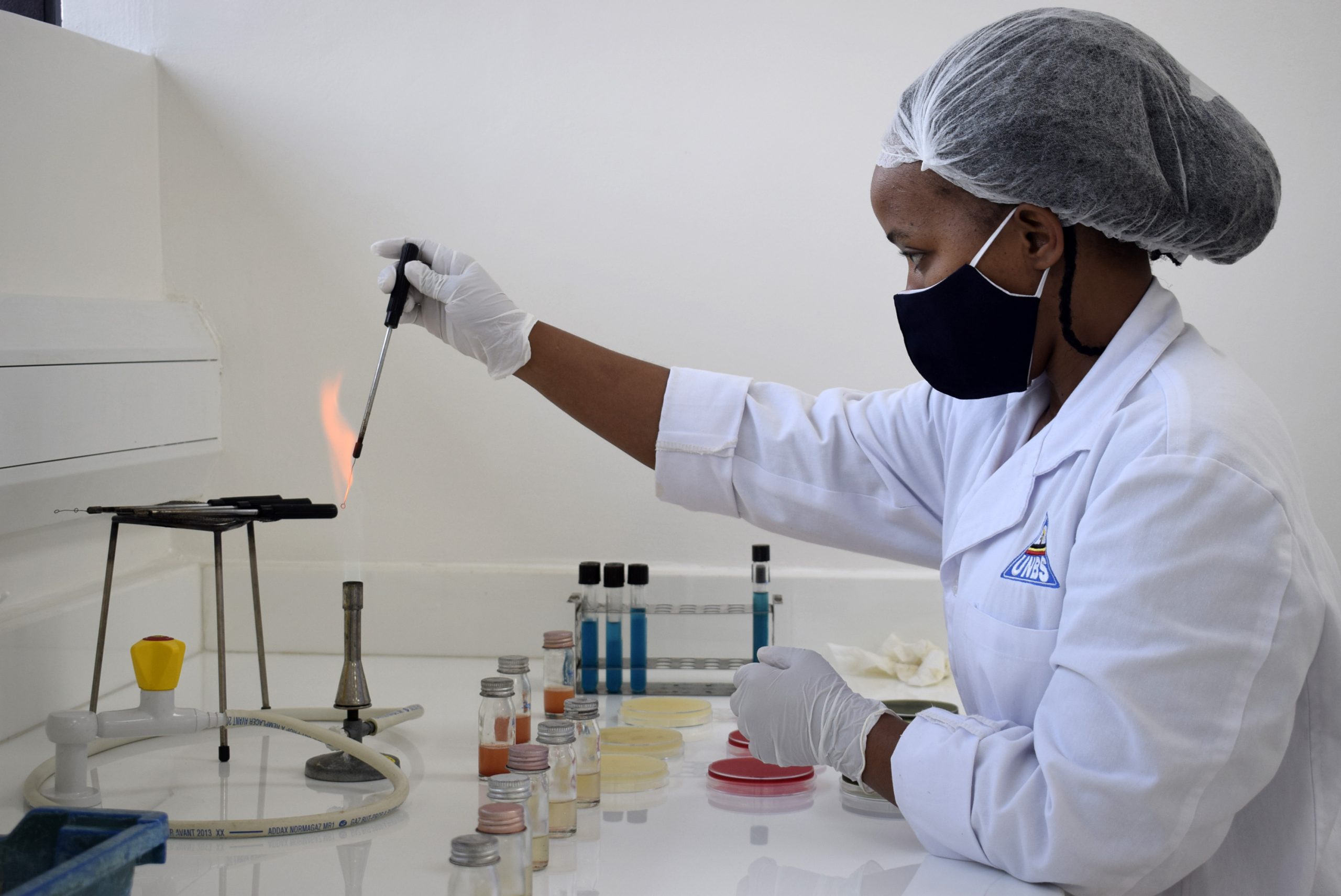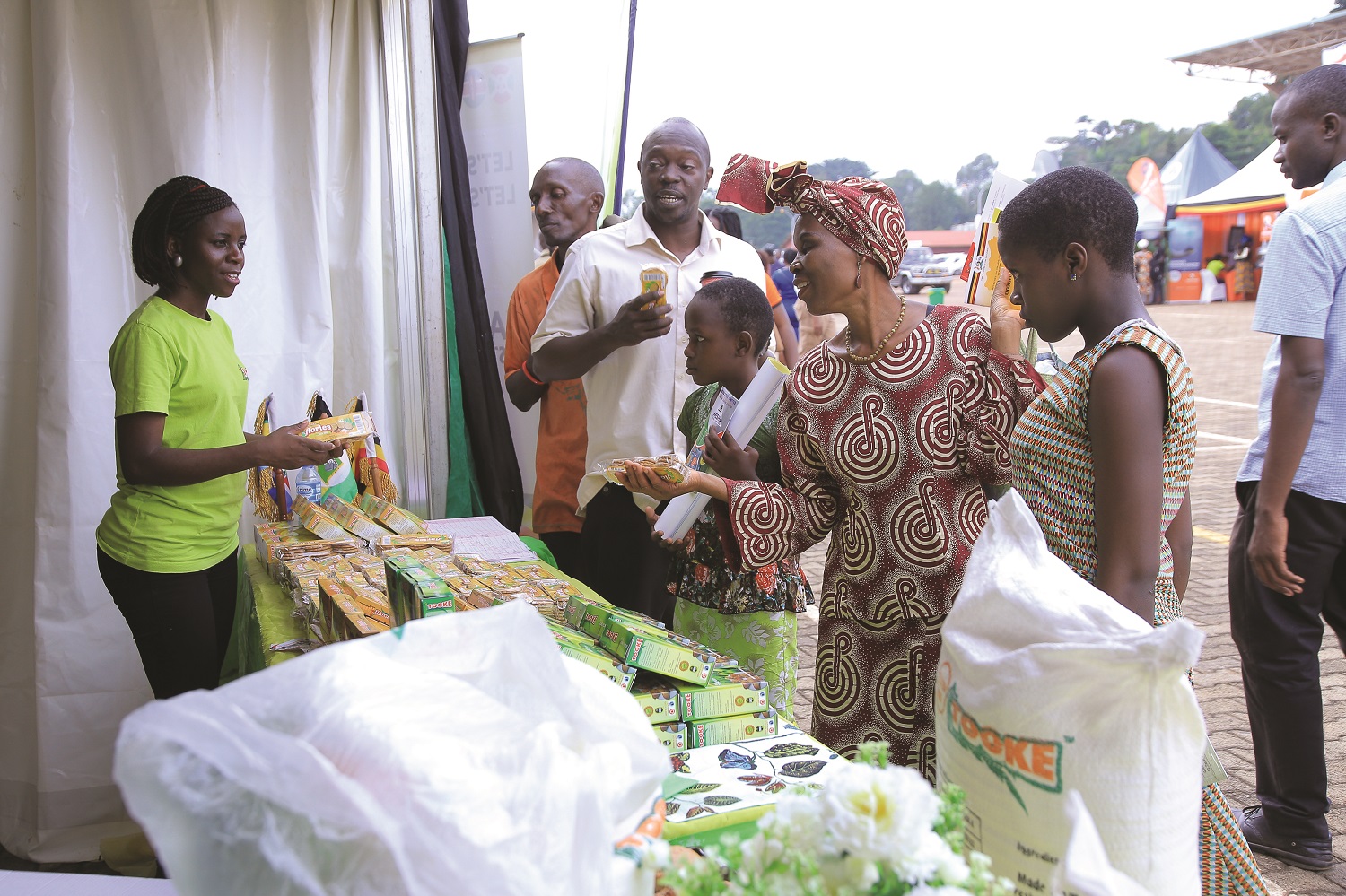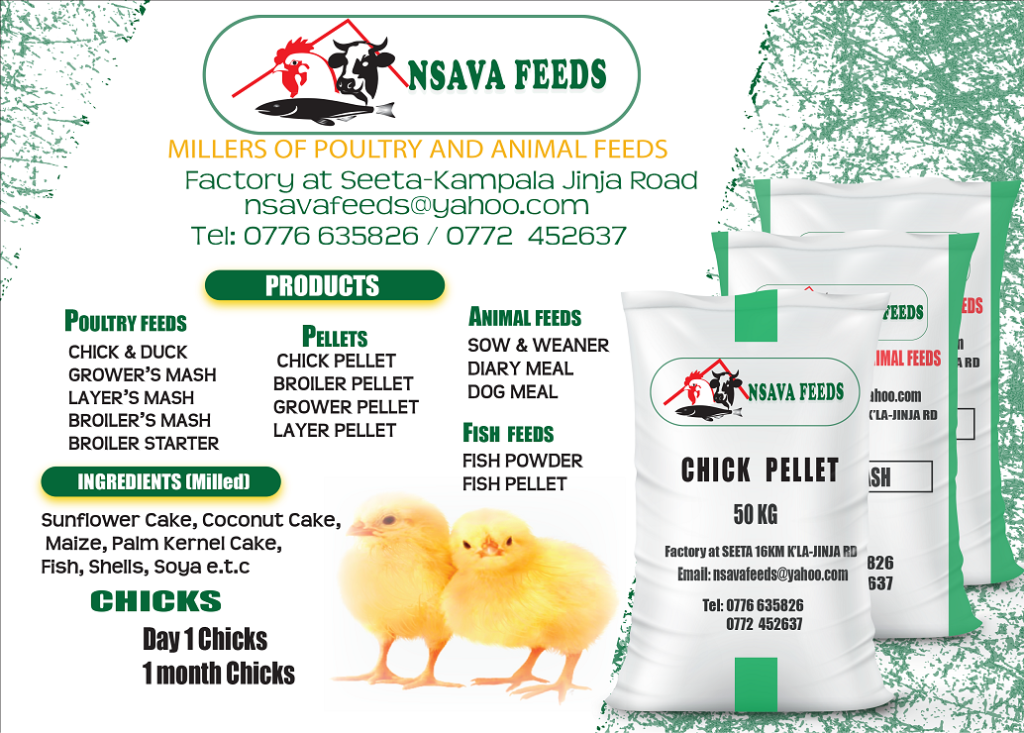Arising from the increasing demand for safe and quality products in both the local, regional and international markets, coupled with the devastating effects of COVID 19 on businesses, Uganda National Bureau of Standards (UNBS) has unveiled a number of packages and complementary services to support the Private Sector and Enterprises involved in the production, manufacturing and distribution of various products to comply with the required safety and quality for their products at subsidized costs so that they will be able to quickly recover and sell to the various markets.
Reduction of Certification Fees provision of Pre-Market & Batch Certification as an interim measure before completing the certification process.
Starting 1st July 2021, Uganda National Bureau of Standards (UNBS) phased out some of the charges which were previously being levied on enterprises seeking certification of their products and these include Initial Audit Fees of Shs 250,000/= and Surveillance Audit Fees of Shs 250,000/=. This implies that UNBS conducts the certification and surveillance audits on Enterprises seeking to acquire the Quality Mark (Q-Mark) free of charge.
Micro and Small Enterprises will now pay net certification fees of Shs 500,000 down from shs 850,000 while Medium and Large Enterprises will pay Shs 1,000,000 down from shs 1,300,000 for the issuance of annual certification permit for the use UNBS Quality Mark (Q-Mark). The new fees structure implies a reduction in certification fees by Shs 350,000 for Micro and Small Enterprises and Shs 300,000 for Medium and Large enterprises. However, Enterprises will continue to separately pay for laboratory testing fees depending on the number of parameters to be analysed for their individual products.
Enterprises involved in the manufacturing of bottled water, alcoholic beverages (excluding wine) and carbonated and non-carbonated soft drinks will remain in the category paying certification fees of Shs1,000,000 per brand regardless of their size because of the additional regulatory input required to monitor their safety and quality before being put on the market.
The new Certification Fees structure have been highly subsidized and only consider recoverable costs in terms of man-hour input for both onsite and offsite certification processes as well as administrative overheads.
Pre-Market Approval Scheme
This is an interim measure to allow enterprise to put their products on the market before completing the certification process. This will help them test the market and get feedback from their consumers to improve the product. It is also meant them to avail them ample time to put in place the required infrastructure to effectively implement quality standards in a sustainable manner.
Micro-Small Enterprises (MSMEs) will pay testing fees their products and Shs 250,000, while the Medium and Large Enterprises will pay testing fees and Shs 500,000 for the Authorisation Letter under this scheme valid for six (6) months. During this period the enterprise is expected to have formalized the certification process to acquire a UNBS Quality Mark (Q-Mark).
Batch Approval Scheme
Under this scheme, enterprises are able to apply for certification of a specific lot or batch of products regardless of their certification status. This situation arise where enterprises get tenders to supply items which the buyers or certain markets require to meet minimum safety and quality standards. This scheme gives opportunity for enterprises to compete for bids before acquiring the UNBS Q-Mark for their products.
Enterprises will pay testing fees and Shs 500,000 for the Batch Certificate (Certificate of Conformity). This has also been reduced from shs 600,000/= previously being charged under this scheme.
Exemption of Raw Materials and Inputs imported for Value Addition
All imported raw materials and inputs used by companies and enterprises for value addition of UNBS certified products are exempted from inspection because quality assurance is done on their certified products. This eliminates disruptions in the production cycle arising from delays in clearance and delivery of these imported inputs.
Provision of free standards to MSME Groups or Manufactures of COVID 19 PPEs.
The Bureau is providing free standards to MSMEs which belong to particular groups or Associations in order to save cost of individual enterprises buying their own standards.
Furthermore, the Bureau in a bid to complement Government’s efforts towards fighting COVID 19 Pandemic is offering free standards to manufacturers of COVID 19 related PPEs such as non-medical masks, sanitizers, liquid hand wash, and protective clothing (surgical and patient gowns). The free standards include;
US 2552:2020, Non-medical masks— Specification
This Uganda Standard specifies the requirements, and methods of sampling and test for the non-medical face masks intended to reduce the risk of general transmission of the infectious agent. It covers non-medical face masks and other face covers made of textiles intended for single use (disposable) or for multiple use that may be washed, disinfected and reused. It does not cover respiratory protective devices such as medical face masks, filtering face masks and breathing apparatus.
US EAS 789: 2013, Instant hand sanitizers — Specification
This Uganda Standard specifies the requirements and methods of test for alcohol based instant hand sanitizers. The standard does not cover non-alcohol based hand sanitizers.
US 1625:2015, Anti-bacterial and Anti-viral instant hand sanitizers— Specification
This Uganda Standard specifies the requirements, sampling and test methods for acid based instant sanitizers.
US 1693:2017, Disinfectants/sanitizers — Specification
This Uganda Standard specifies requirements, sampling and test methods for disinfectants/sanitizers intended for general use on inanimate surfaces including food contact and non-food contact surfaces. This standard is applicable to disinfectants/sanitizers represented for use on non-critical medical devices, environmental surfaces and other inanimate objects. This standard does not apply to disinfectants/sanitizers containing iodophor(s) and aldehydes as active ingredients.
US 1709:2017, Disinfectants/sanitizers based on iodophors — Specification
This Uganda Standard specifies requirements, sampling and test methods for disinfectants/sanitizers that contain iodophor(s) as active ingredient(s) and intended for use on inanimate surfaces.
US 1710:2017, Disinfectants/sanitizers based on glutaraldehyde for general use — Specification
This Uganda Standard specifies requirements, sampling and test methods for two types of disinfectants/sanitizers based on glutaraldehyde and intended for general use on inanimate surfaces.
US EAS 812-1:2015, Liquid hand wash — Specification — Part 1: Synthetic and combined (soap and synthetic) hand wash
This Uganda Standard specifies the requirements and methods of test for synthetic and combined (soap and synthetic) hand wash. This standard does not apply to soap-based hand wash.
US 966-1:2011, Medical devices — Surgical gowns, drapes and clean air suits, — Part 1: General requirements
This Uganda Standard specifies information to be supplied to users and third party verifiers, in addition to the usual labelling of medical devices (ISO 15223), concerning manufacturing and processing requirements. This standard gives general guidance on the characteristics of single-use and reusable surgical gowns, surgical drapes and clean air suits used as medical devices for patients, clinical staff and equipment. This standard does not include requirements for incision drapes.
US 966-2:2011, Medical devices — Surgical gowns, drapes and clean air suits, — Part 2: Test methods
This Uganda Standard specifies test methods for evaluating characteristics of surgical gowns, drapes and clean air suits.
US 966-3:2011, Medical devices — Surgical gowns, drapes and clean air suits, — Part 3: Performance requirements and performance levels
This Uganda Standard specifies performance requirements for surgical drapes, gowns and clean air suits.
The standards would have cost manufacturers a minimum of shs 300,000, which is now saved because the standards are free of charge.
There are also other International Standards available free of charge from UNBS international partners on their websites such as;
The International Organization for Standardization (ISO) is providing free online browsing of several ISO Standards on protective gloves, Anaesthetic and respiratory equipment, Lung ventilators, Protective clothing, Emergency management, etc. These can be accessed at https://www.iso.org/covid19
The American Society for testing and materials (ASTM), is providing no-cost public access to important ASTM standards used in the production and testing of personal protective equipment, These can be accessed at https://www.astm.org/READINGLIBRARY/
The above free standards can be accessed by sending a request via email to UNBS Mr. George Opiyo george.opiyo@unbs.go.ug or Mr. Maurice Musuga maurice.musuga@unbs.go.ug
Decentralization of UNBS Services to Regional Offices of Mbale, Gulu and Mbarara
The Bureau has embarked on decentralizing its services to other parts of the country and has so far established its branch offices in Mbale to cater for the Greater Easter Region, Gulu to cater for the Greater Northern and Mbarara to cater to the Greater Western Region.
Decentralization to Eastern Uganda is aimed at supporting the cereals, fruits and vegetables value chain in the region, in addition to other agricultural and value added products, while establishing UNBS offices in Northern Uganda will support the vegetable oil products in the region, in addition to other agricultural and other value added products and the one in Western Uganda will support the dairy products in the region, in addition to other agricultural and value added products.
The Bureau is also planning to decentralize its offices to the Albertine Region to support enterprises involved in the Oil and Gas Value Chain.
Harmonization of Commonly Applied Regional, Continental and International Standards to increase Market Access.
A standard is a document that contains rules, guidelines or characteristics of given product. Standards are important because they guide the user on the required and appropriate designs of products, services and systems, which in turn improves product, service and systems’ quality, leading to efficiency as business costs are reduced, profits are increased, driving growth of the business sector and economy at large.
In order to facilitate access of Ugandan products to regional, continental and international markets, the Bureau has adopted and harmonized a number of standards, including 505 standards with the East African Member States (EAC), 2,355 standards harmonised with the International Organisation for Standardisation (ISO), 267 harmonised with the International Electro technical Commission (IEC), 143 harmonised with Food Code – Codex Alimentarius (CODEX), 7 standards harmonized with African Organisation for Standardization (ARSO), 3 standards harmonized with International Organization of Legal Metrology (OIML) and 2 standards harmonised with the European Norm/European Standards (EU).
The harmonization of standards with regional, continental and international partner states implies that once UNBS has certified Uganda products against these Standards, they should freely access these markets without being subjected to further quality checks. Harmonization of standards is therefore meant to facilitate global trade.
Maintenance of Internationally Accredited Laboratories to provide Testing capacity local products, imports and exports.
The Bureau has recently completed the construction and commissioning of its modern Food Safety Laboratories (Chemistry and Microbiology) at its Headquarters in Bweyogerere Business and Industrial Park. These Laboratories are internationally accredited, which implies that results of product samples analysed by UNBS Laboratories are internationally recognized and this promotes access of Ugandan Certified products to regional and international markets. The Bureau also operates the Materials Engineering and Electrical Engineering Laboratories.
Both chemical and microbiology laboratories test various foods and non-food products including milk, beef, fish, honey, fruits, vegetables, carbonated and non-carbonated soft drinks, alcoholic beverages, water and cosmetics, paints, textiles, leather, sanitizers, disinfectants, face masks, surgical gowns, clean air suits, toilet paper, diapers, sanitary towels and other products.
The chemistry laboratory test for contaminants in food and feed. Tests are often required for pesticide residues, residues of veterinary drugs, mycotoxins such as aflatoxins, heavy metals e.g. lead, mercury, arsenic and cadmium that are toxic and not desirable in food or feed. In addition, we conduct tests for chemical composition of products that determine their quality, performance and authenticity.
Our microbiology laboratory specialises in test against pathogenic organisms that may occur in food, feed and other products. This helps assure that products are produced in clean environment and do not present safety concerns to consumers. These tests include Total Plate Count, Total Coliforms, Escherichia coli, Yeast and Moulds, Vibrio cholerae, Enterobacteriacea, Salmonella, Pseudomonas aeruginosa, Streptococcus faecalis, Listeria monocytogenes, Candida albicans, sulphite reducing anaerobes and clostridium perfringens. We also perform general tests e.g. microbial cleanliness, anti-bacterial activity and bactericidal efficacy.
Our engineering laboratories test materials and electronic and electrical products. The electrical engineering laboratory tests put emphasis on the safety and performance of accessories, batteries, power cables, appliances, electronic and solar products. In addition, we test for performance of materials for construction, production and home use. Many products such as building blocks, tiles, roofing materials and paints should meet standards to ensure the use does not endanger consumers.
Our laboratories support other laboratories in the country through our Inter laboratory Comparison Scheme (ILC) and proficiency testing services for East African Community. In the ILC scheme we share samples with other laboratories and compare results. This helps build capacity and confidence in private and public laboratories to support industry. In this scheme, products tested include potable water, milk, soft drinks, fruit juices, cosmetics, coffee, cement and iron bars.
The public is welcome to visit our facilities in Bweyogerere Industrial Park.
Send your requests for testing of your products to samplereception@unbs.go.ug
Simplification of Technical Standards into easy –to- use Guidelines Translated to Local Languages
The Bureau has intensified standards awareness campaigns among Micro, Small and Medium Enterprises (MSMEs) and is simplifying standards into easy-to-use guidelines and translating them to local languages in order to ease implementation of quality standards by MSME whose staff have not gone far with their education.
The Bureau provided 24,000 individual booklets of illustrated guidelines to the Directorate of Fisheries, covering best practices for the handling and processing of Mukene (Silver fish), Smoked Fish, Fresh Fish, Nile Tilapia and Fish Maws. The guidelines were translated to Luganda, Leb- Lango and Swahili.
UNBS simplified and translated key hygiene and labelling standards; US 28 EAS 39:2002: Code of practice for hygiene in the food and drink manufacturing industry and US EAS 38:2014: Labelling of pre-packaged foods – General requirements. Of the 14,000 brochures of simplified standards guidelines printed by UNBS, 7000 are in the English language and 7,000 in the Luganda language. The guidelines handed over to Uganda Small Scale Industries Association (USSIA) for distribution to MSMEs in various regions of the country in a bid to create awareness on Standards.
The Bureau has also simplified key standards and guideline documents in selected value chains; Pineapples, Rice, Soybean, Sheanut, and Avocados. These were translated to Luganda, Lango, Lumasaaba, Ateso, Acholi and Runyoro-Rutooro. Over 600 farmers in the districts of Kabarole, Hoima, Ibanda, Kasese, Kayunga, Kiboga, Otuke, Lira, Soroti, Agago, Sironko/Mbale, Bugiri, and Amuru benefitted from the standards trainings conducted between September and December 2019.
The second phase of translation of the simplified guidelines will cover more languages like Lugwere, Lukonzo, Kumam for rice guidelines and Lusoga, Lukonzo, Kumam, Lugwere, Runyankole for soybeans.
The Bureau provided 72,000 brochures of simplified standards guidelines printed by to Uganda National Farmers Federation (UNFFE) for distribution to farmers in various regions of the country in a bid to create awareness on Standards.
Establishment of MSME Division to provide Tailor Made Assistance to MSMEs
Having acknowledged the challenges which the Micro-Small enterprises are facing in the country such as limited access to financing, lack of skilled manpower, limited knowledge about standards and poor quality infrastructure, the Bureau has established a fully- fledged Division in its Certification Department to specifically handle MSMEs issues and support them in the implementation of quality standards. The support includes providing training and advisory services.
Over 2000 MSMEs have so registered with UNBS and about 800 of them trained in Good Manufacturing Practices (GMP) and Good Hygiene Practices (GHP)
The Bureau’s staff continue to provide technical guidance and support to MSMEs both on-site and off-site. Of the over 3,500 certified products, about 1200 belong to MSMEs.
The UNBS MSMEs’ Desk can be accessed through email ronald.ahimbisibwe@unbs.go.ug.
Collaboration with Private Sector Associations to Promote Quality Culture
The Bureau is currently on a campaign to promote voluntary compliance and self- regulation among companies and enterprises involved in the production, manufacturing, processing and distribution of various products regulated by the mandatory standards to ensure their safety, quality and performance. In this regard, the Bureau is closely collaborating with the Private Sector Foundation Uganda (PSFU), Uganda Small Scale Industry Association (USSIA), the Uganda Manufacturers Association (UMA), The Uganda National Apiculture Development Organisation (TUNADO), Uganda Women Entrepreneurs Association Limited (UWEAL), the Mastercard Foundation and other sector associations such as the Steel sector, Water sector, Alcohol sector, Mattress sector, Super Market Operators, among others. With increased voluntary compliance, the complaints about the Bureau being high-handed in enforcing quality standards will be eliminated
UNBS is therefore encouraging MSMEs to join associations to benefit from UNBS sector specific support and interventions.
Automation of UNBS Services to Remote and Online Access
In a bid to simplify the processes and increase efficiency in service delivery, the Bureau has automated most of its core services to enable stakeholders access the required services remotely and online wherever they are at their convenience;
Registration for Certification can be done via www.cims.unbs.go.ug and Inquiries sent to certification@unbs.go.ug
To buy standards, go to the UNBS Webstore https://webstore.unbs.go.ug/ or send Email to maurice.musuga@unbs.go.ug or george.opiyo@unbs.go.ug
To Request for standards development, go to the standards tab on the UNBS website, Obtain, fill and email the “Request_for_standard_development_form” to andrew.othieno@unbs.go.ug
For Submission of products samples for testing or requests to obtain Test Results or Request to retrieve retained samples email; samplereception@unbs.go.ug
For Imports Clearance:
Pre-Export Verification of Conformity (PVOC) related issues emailed to pvocunbs@unbs.go.ug
Requests for Release of Entries at Customs Bonded Warehouses email release-requests@unbs.go.ug
Requests for release of Single Customs Territory (SCT) Entries email sct@unbs.go.ug
To obtain quotation for Calibration of Equipment use https://nml.unbs.go.ug
For Complaints and any other related information, send to support@unbs.go.ug ,
For General Inquiries use the UNBS Website: www.unbs.go.ug Email: info@unbs.go.ug Toll Free Number: 0800133133 Whatsapp Number : 0713 227580 Twitter handle: @UNBSug
For Appeals against Actions taken by UNBS send request to ed@unbs.go.ug
The UNBS services can also be accessed using the UNBS App that can be downloaded from Google Play.
About UNBS
The Uganda National Bureau of Standards (UNBS) is a Government Agency responsible for Developing, Promoting and Enforcing of National Standards in order to Protect Public Health and Safety, and the Environment against harmful and sub-standard products.
For more information, please contact:
Uganda National Bureau of Standards,
Plot 2 – 12, Bypass Link, Bweyogerere Industrial & Business Park,
P.O Box 6329 Kampala, Uganda.
Telephone: 256 417 333250
Toll Free Line: 0800133133
E-mail: info@unbs.go.ug /ed@unbs.go.ug
Website: www.unbs.go.ug









